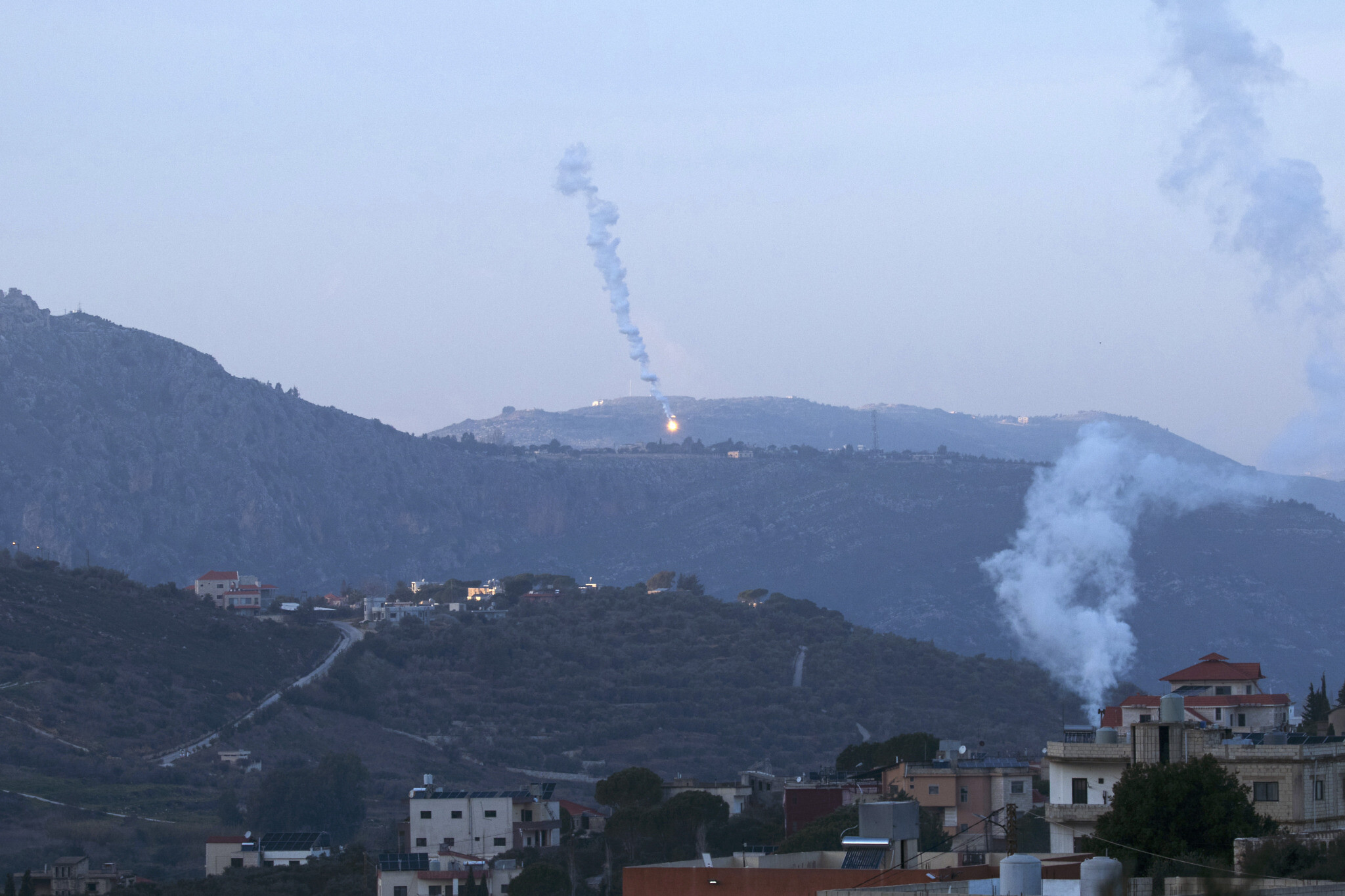



BEIRUT (AFP) — “Good morning, madame. This is the bank calling. Are you at home?”
Since the Israel-Hamas war broke out more than three months ago, residents of southern Lebanon have been receiving strange phone calls from Lebanese numbers and from people speaking in Lebanese accents.
The voices on the other end may claim to be conducting a survey, distributing aid or calling from a public body.
But the callers ask about families and their whereabouts, just before towns or homes come under Israeli attack, residents told AFP.
Lebanese security officials and the Iran-backed Hezbollah terrorist organization, part of the “axis of resistance” network of Iran proxies that also includes Hamas, believe the strange calls are in fact from Israelis.
Last week, Umm Hussein, who is in her 70s and originally from the southern Lebanon village of Khiam, received a call from “the bank” asking her to come and collect some money at the nearby branch.
But according to her grandson Hassan Shukeir, Umm Hussein doesn’t even have a bank account.
“They asked her if she was in Khiam, and the call ended when she said she was in Beirut,” Shukeir told AFP.
Shortly after the call was terminated, an Israeli strike targeted the house next to hers in the village, the grandson said.

Since October 8, a day after the deadly Hamas attacks on southern Israel, Hezbollah has engaged in cross-border fire on a near-daily basis, launching rockets, drones and missiles at northern Israel in a campaign it says is in support of Hamas. The attacks forced most residents several kilometers from the border to evacuate. Israel has responded with its own regular strikes on Hezbollah targets, and has warned it will not be able to tolerate the terrorists’ continued presence on the border.
While stopping short of declaring all-out war on Israel in support of Hamas, Hezbollah chairman Hassan Nasrallah has pledged to continue attacking the Jewish state until a ceasefire is reached in Gaza, much to the chagrin of Lebanese government officials who want to avoid war. Israel, meanwhile, has indicated it would be willing to wage war on Hezbollah if necessary.
As Israel has carried out regular strikes on Hezbollah targets in south Lebanon, the group has told residents of villages in the south not to divulge any information to people calling from Lebanese numbers they do not recognize.
“The enemy exploits such information to try to ensure the presence of our brother fighters in houses it intends to target,” Hezbollah said in a statement.
A Lebanese security source told AFP that army intelligence and the police were investigating the calls which they believe originated in Israel, meaning Lebanon’s communications network has been compromised.
The source, who requested anonymity because they were not authorized to talk to the media, said Israel has used this tactic before to target Hezbollah members holed up in homes.

In one case on November 22, a strike hit a house in the village of Beit Yahun, killing five Hezbollah members, including the son of Mohammed Raad, who heads the group’s bloc in parliament.
Shortly before that attack, an unknown caller had asked the owner of the house whether she and her family were at home, the security source said.
A spokeswoman for the Israeli military told AFP she was “unable to answer that question,” when asked if Israel was behind the phone calls.
According to Hezbollah, Israel has also hacked into security surveillance cameras at homes and businesses in border villages.

In December, it said Israel was using this access to target its members, and urged Lebanese citizens to “disconnect the private cameras… from the internet.”
Hezbollah said Israel had hacked the cameras to gain visibility after the group’s cross-border attacks had “targeted most of the cameras” that Israel itself had installed near the border.
One resident, who asked to remain anonymous for security reasons, told AFP a local Hezbollah official called him recently and demanded he turn off and disconnect CCTV cameras installed around his house.
He complied with the demand.
The security source said three men had been arrested recently on suspicion of working with Israel-affiliated companies. One is accused of scanning for home Wi-Fi networks in Hezbollah’s southern Beirut stronghold.

Abed Kataya of digital rights group SMEX said civilian communications networks and CCTV cameras in Lebanon are easy to hack because the infrastructure lacks basic security measures.
Private surveillance cameras, mostly Chinese imports, can be connected to the internet so owners can monitor them from afar using phone apps.
But the connection is often “unencrypted, which makes it easy to hack,” Kataya said.
He said Israel has “a long history in espionage techniques,” especially in Lebanon, deploying spy balloons and observation towers along the border.

On January 7, even the departures and arrivals screens at Beirut airport came under cyberattack, with media publishing footage showing anti-Hezbollah messages displayed instead and baggage conveyor belts that had ground to a halt.
Those behind the airport hack have yet to be unmasked, with Public Works and Transportation Minister Ali Hamieh saying the incident was under investigation but also admitting Lebanon lacks cybersecurity expertise.
Times of Israel staff contributed to this report.
